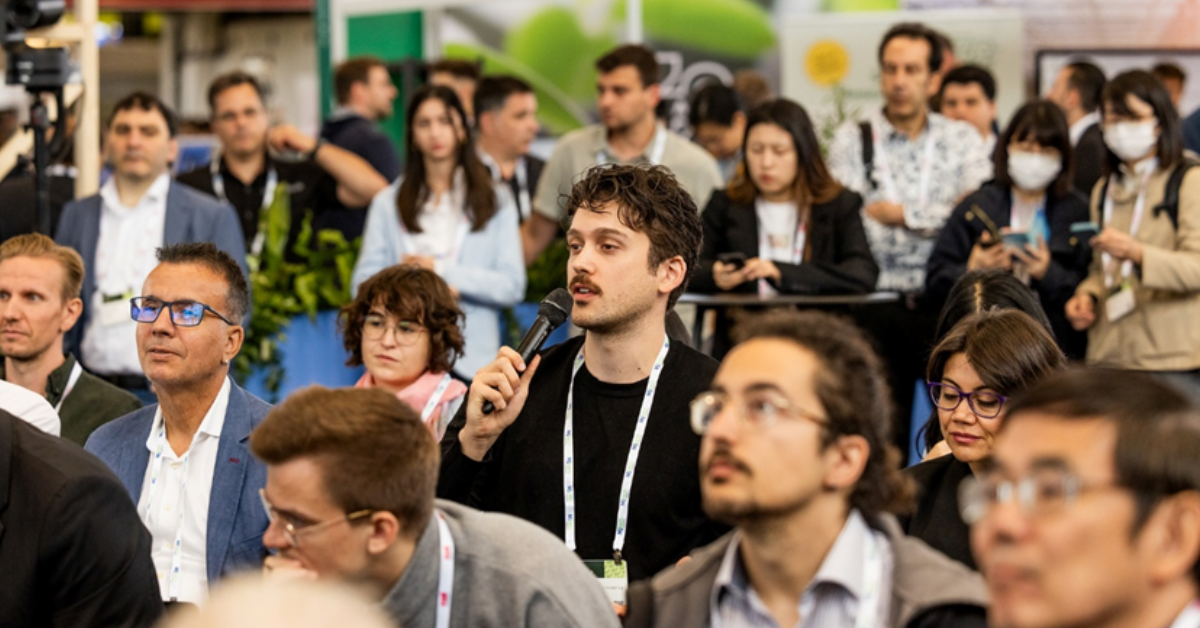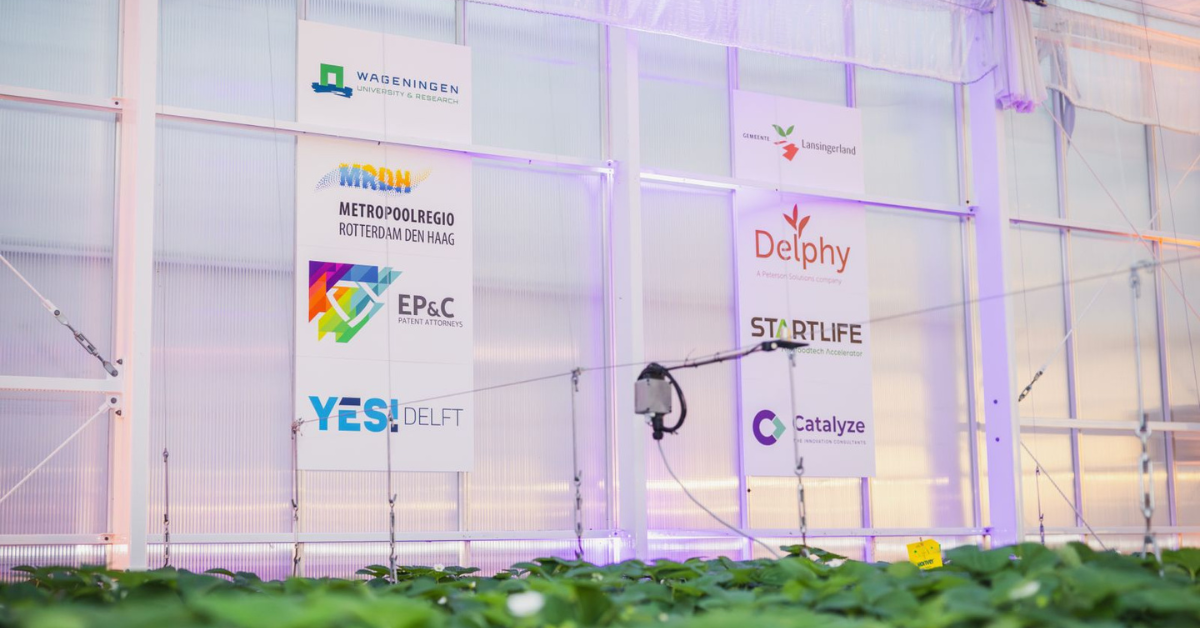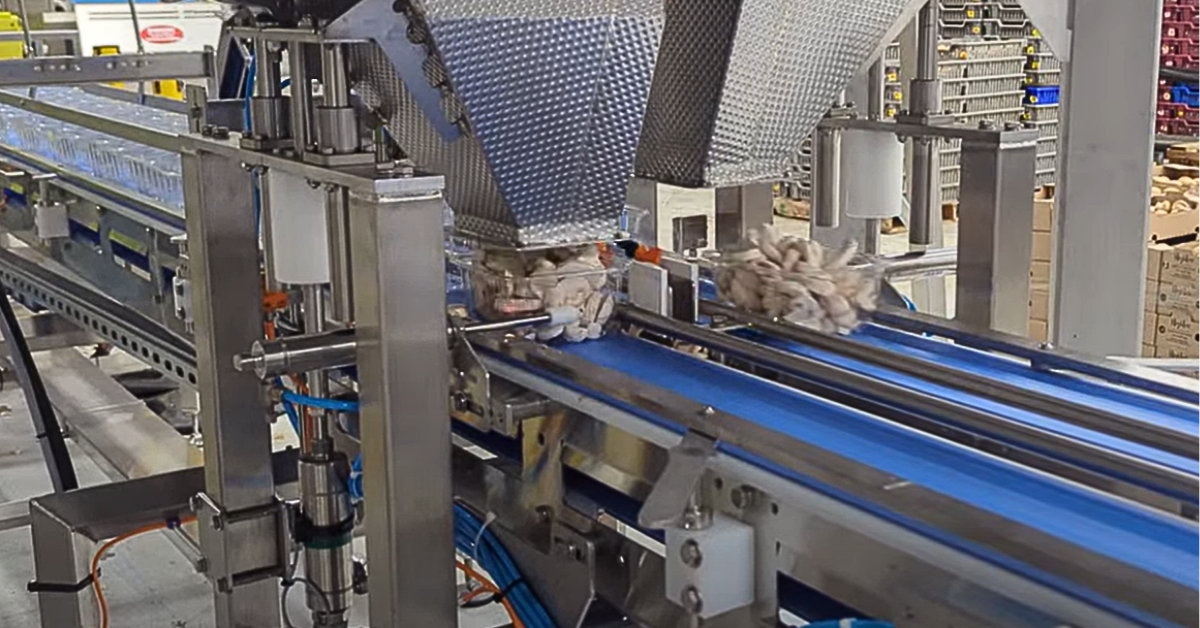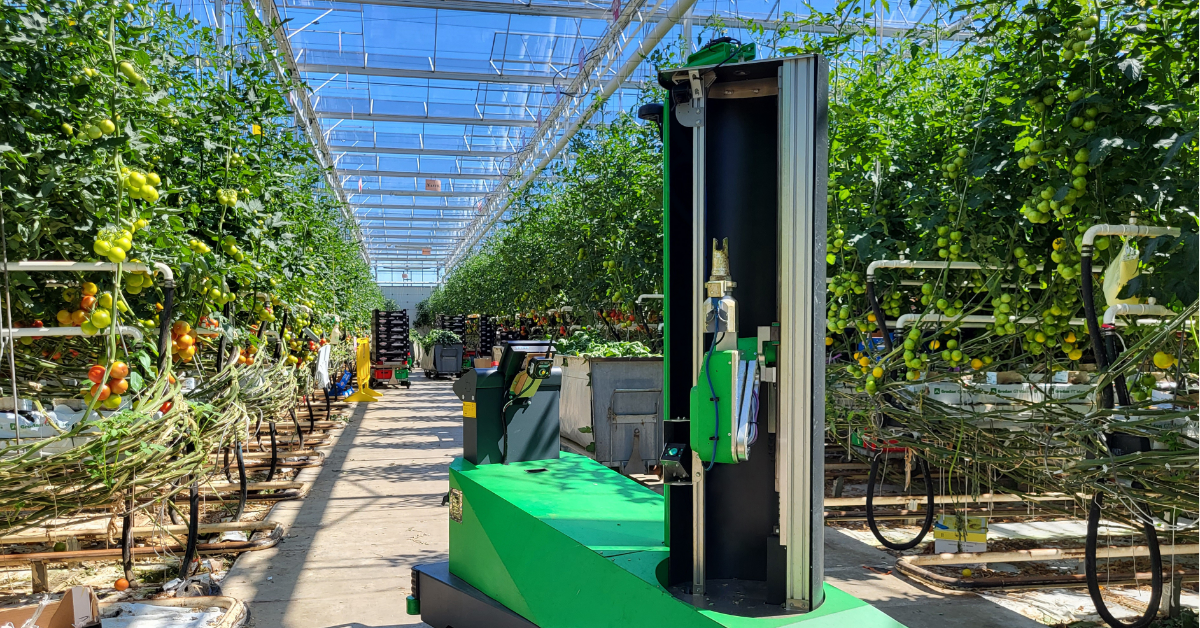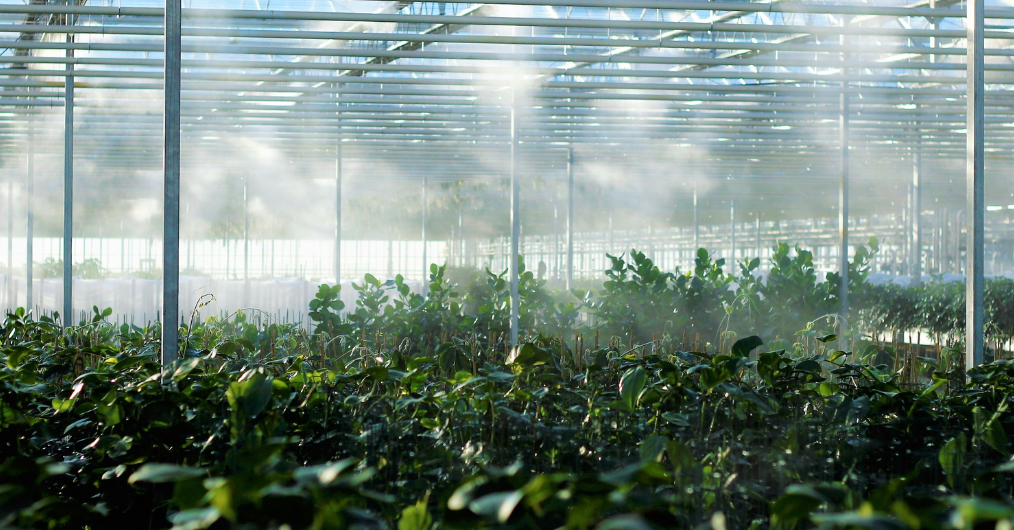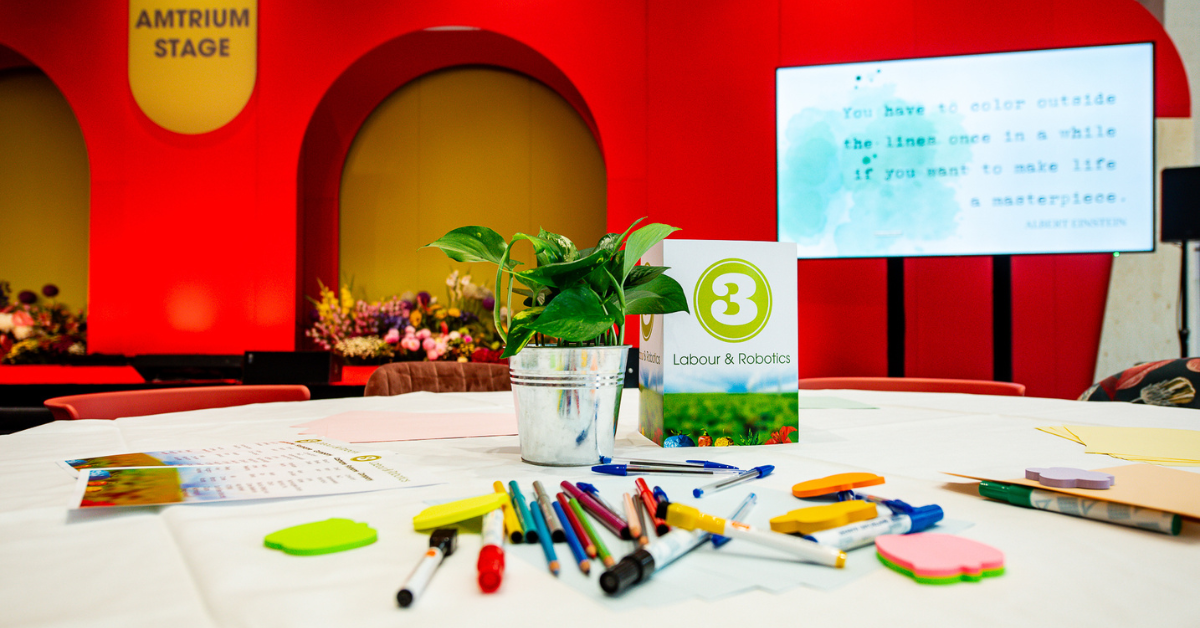Loading component...
'Today's green fingers will be digitalized'
 Author: Jacco Strating
Author: Jacco StratingGreenTech is shining a spotlight on the transitions happening in the world today. With numerous challenges such as climate change, water scarcity, and the need for more sustainable practices, the current food production systems are being greatly affected. In a series of articles, we will delve into the challenges and opportunities of these transitions in the horticulture industry. In this article we focus on people. To what extent is attracting talent essential for growers, their technologies, and achieving the sustainability goals?
Tomato growers CombiVliet and Agro Care recently announced their merger. It will be the largest merger of tomato growers in the Netherlands, which will continue under the name Agro Care. The two companies were already among the largest and most modern tomato growers in the world, but together the area of the two partners is approaching 500 hectares. This growth also requires sufficient people. “People are without a doubt the most important factor in a company. You can buy a computer, plants, greenhouses, systems, anything you can think of, but people make the difference. If you don't have them, the rest isn't much use either,” says Manager HRM & Communication Martine van der Meer (Agro Care).
According to Van der Meer, the company's growth not only brings challenges, but also benefits when it comes to attracting talent. "Every company wants young people with fresh, innovative ideas. We do too, of course. By growing as a company, you can also offer more opportunities to people. We see that as a larger company, you are more in the picture, and if that’s positive, then that’s a good thing. We try to introduce people to our company through internships. We also have a few hundred students who work for us as a part-time job. A lot of them stay at the company and grow within the organization. It is important to have a good mix between all ages, cultures and types of people. The more diversity, the stronger we are as a company."
People have to grow along
Van der Meer indicates that it is especially difficult to find people for technical specialisms. “But that was no different 20 years ago than it is now and the world has moved on in the meantime. Moreover, even in a large labour market, good people are scarce. So actually, the search for good employees is always a challenge.” Because the work in the greenhouse is changing, a different type of employee is needed today than in the past, says Van der Meer. “We need people who are more flexible, who can deal with changes more easily, who can think more broadly and who can see the bigger picture. Our playing field is global, so people have to grow with along.”
Agro Care helps employees by offering courses and training. “But we also think it is important that people continue to develop as people. Intrinsic motivation is a condition for success. That is why we do our best to motivate employees to continue to develop and thus grow with our company.” In order to also interest new people in horticulture, according to Van der Meer, the sector must above all show the human side and tell how much fun the work is. “You have to be triggered as a person. I see that young people quickly lose interest in small details that we as adults find insignificant, but that are valuable to them. So, involve young people more in what you do and immerse yourself in this specific group.”
AVAG is the association of Dutch companies that collaborate in the field of integrated growing systems, components and associated services. The organization represents the joint interests of the companies and supports them in the areas of quality, innovation, internationalization and also the labour market. The most important developments in horticultural technology are robotization and digitalization. These technologies will significantly change cultivation. "This is also necessary because it is becoming increasingly difficult to find sufficient labour", says Annie van de Riet, Chair of AVAG. "And in particular highly skilled workers who can handle these technologies, can read and interpret the data from the installations and can choose the right cultivation strategy on that basis. In other words, today's green fingers will be digitalized."
Taken over by algorithms
According to Van de Riet, this development does not mean that fewer people will be needed in the future, but different people. “More technically trained people. People who can program the robots and make them do the right things. And people who can handle the increasingly high-quality installations. Data-driven growing is definitely the future. The ‘fingerspitzengefuhl’ fades into the background and is taken over by algorithms that provide advice on cultivation. In the long term, these algorithms can even take over the settings of the installations autonomously. But that will take a number of years.”
In addition to substantive knowledge, employees will also have to be more flexible in the future, Van de Riet believes. “A school education is no longer sufficient for the rest of your career. Developments are happening so fast that you will have to continue taking courses to keep up. Employees will therefore be asked to be open to this. Stay curious and eager to learn. Be open to responding to changes in your field. This requires great flexibility from all involved.”
Van de Riet indicates that it is currently quite difficult to interest enough technical people in a job in horticulture. “In certain areas, horticulture is well-known and dominant in the regional economy. Outside of that, this is not the case and companies have to compete with other sectors. So AVAG companies are also fishing in the same pond for mechanics, data analysts, project managers, etc. in competition with other sectors.” AVAG uses various instruments to draw attention to the sector. “For example, we organize the HortiTalent program every year, where students at GreenTech Amsterdam get to know horticulture. We are also involved in CollegeTour, where school classes are invited to companies. And with a trainee program, we offer recent graduates work experience at various companies. And once you have ended up in this sector as a high potential, there is the Young AVAG program to get to know the sector better and work on your personal development."
New talent
According to Van de Riet, it is important that new talent continues to emerge. “The potential of horticulture is enormous. Food security is high on the political agenda again, partly due to corona and geopolitical tensions. The world population continues to grow and with it the need for (healthy) food. In addition, prosperity is increasing and people are opting for an increasingly luxurious menu. In order to continue to meet all these needs, an expansion of Controlled Environment Agriculture is necessary. In other words, greenhouse horticulture where high production is achieved in a protected environment with the smallest possible footprint in terms of the use of water, energy and crop protection products.”
Different competencies
Greening is essential to be able to continue growing under glass in the future. That is why growth specialist Van Iperen is investing heavily in this. The company works with a system approach to make growing in the future possible and offers support to growers to take sustainable steps. The company sees numerous challenges in this, says Commercial Director Wouter van Vliet (Van Iperen). “Growers can use fewer and fewer resources, have to deal with water guidelines, have to work more energy-efficiently, see the sector digitize further and have to be able to justify their sustainable steps. In order to be able to guide growers in this, our specialists are also required to have different competencies than before. Specialization is becoming increasingly important. That is why we are increasingly focusing on growth specialisms, but different knowledge is also required on a technical level.”Van Iperen therefore offers its own specialists a growth plan and colleagues support each other to keep knowledge up to date. "Because our people are motivated, new colleagues also enjoy coming to work here." In any case, according to Van Vliet, sustainability is a theme that appeals to young talent. “We have a Director of Sustainability and Business Development since this year and his team will be expanded in the coming years, so that new projects can be taken on and supervised. By distinguishing ourselves on that theme, we are also able to attract sufficient people. And we have little outflow because we ensure good supervision and a good development programme. That is very important to attract talent, but also to ultimately keep them on board.”

